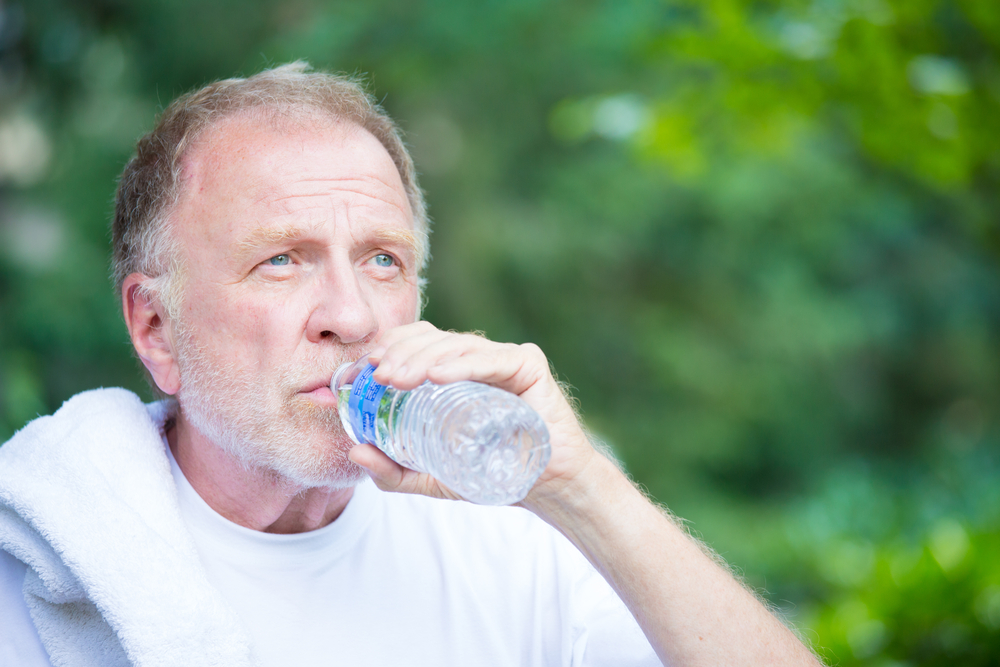Dehydration occurs when the body loses more fluids than it receives. As water is essential for many processes in the body, like regulating temperature, lubricating joints, and removing waste, suffering from dehydration for any period can be a serious cause for concern.
Dehydration in the elderly can be even more of a worry. With age, the body faces a higher risk of complications related to reduced kidney function, diminished mobility, and underlying health conditions. This means it’s important to know the signs of dehydration in the elderly.
Read on to learn all you need to know about spotting symptoms of dehydration in the elderly, preventing health complications related to dehydration, and maintaining healthy water habits.
What Causes Dehydration in the Elderly?
Dehydration can be caused by many things, including heat exposure, illness and excessive urination. However the elderly can be more susceptible to dehydration for several reasons. People aged 65+ have lower base levels of water in their bodies than children and younger adults to start with. In addition, a person’s thirst sensation often weakens noticeably as they get older.
The elderly are also more likely to suffer from kidney diseases like diabetes, and urinary tract problems, both of which can impact a person’s ability to retain and utilize consumed fluids. In short, persons aged 65+ are less likely to notice when their bodies need more fluids, may be less able to acquire those fluids, and their bodies will be less able to use fluids efficiently.
Risk Factors for Dehydration in the Elderly
If you’re looking after an older relative, worried about an older person in your life, or are aged 65+, look out for the following factors that can increase the risk of dehydration in the elderly.
- Illnesses – Illnesses with symptoms such as fever, diarrhea, and vomiting can cause dehydration in the elderly, so make sure to drink more water at regular intervals.
- Heat exposure – Spending too much time in hot or humid environments will lead to an increase in fluids lost by sweating, make sure to limit exposure to such conditions.
- Medications – Some medications including common blood pressure medications and diuretics can cause patients to urinate more frequently leading to increased fluid loss.
- Mobility issues – Elderly people suffering from mobility issues like joint pain, arthritis, or muscle weakness may need some help acquiring fluids throughout the day.
- Neurocognitive disorders – Older people living with conditions like dementia or Alzheimer’s disease may not know when they’re suffering symptoms of dehydration.
In addition to these factors, unexpected excessive sweating in the elderly can also contribute to fluid loss. This can happen without warning, even in comfortable environments, making it harder to recognize dehydration early, especially in older adults who may not feel thirsty or show immediate symptoms.
What are the Signs of Dehydration in the Elderly?
Symptoms of dehydration in the elderly can be both physical and mental. So it’s important to watch out for any changes in mood or appearance if you, or an elderly person in your care, have been exposed to any of the above-mentioned risk factors.
Common early signs of dehydration in the elderly include:
- Sunken eyes
- Muscle cramping
- Dizziness/fatigue
- A dry mouth / dry cough
- A decrease in urination
- Darker than normal urine
- Heat intolerance/chills
- Headaches
These early signs of dehydration in the elderly can often be successfully treated by having the person drink fresh water, or water mixed with electrolytes. Remove the person from risk factors like excessive heat and monitor them for an hour or two to see if symptoms subside.
If the person is suffering from a severe case of dehydration, or the above symptoms worsen, immediate medical care may be required. Severe signs of dehydration in the elderly include:
- Difficulty moving/walking
- Noticeable confusion/disorientation
- Diarrhea/vomiting lasting over 24 hours
- A rapid heart rate
- Fainting
If left untreated, severe dehydration in the elderly can lead to several serious health complications. The person may suffer seizures due to low potassium and sodium levels, kidney failure, or even hypovolemic shock that causes a severe decrease in blood pressure.
How to Prevent Dehydration in the Elderly
The main way to prevent dehydration in the elderly is to make sure the person drinks enough fluids during the day to replace those lost through things like sweating or over-exertion. As a general rule, adults should drink 1.7 liters of water every day to maintain healthy fluid levels.
In addition to this, below are some tips worth considering to mitigate the risk of dehydration:
- Avoid caffeinated drinks – While it’s okay to divert from water by drinking things like milk and fruit infused water, caffeinated drinks like tea and coffee should be avoided as they can act as a diuretic which causes an increase in urination.
- Eat hydrating foods – Foods with high water content can help to reduce the risk of dehydration in the elderly. If you find it hard to drink enough water throughout the day, try adding foods like watermelon, celery, or cucumber to your diet.
- Plan around risks – If you know you’re going to be exposed to hotter weather than normal, are planning to exercise more than normal, or are suffering from an illness that causes vomiting/diarrhea, plan to increase your fluid intake accordingly.
- Speak to your doctor – If you suffer from underlying health conditions like diabetes or urinary tract issues that can increase dehydration risks, speak with your doctor to develop a unique hydration plan based on your needs.
Conclusion
Dehydration in the elderly can be a serious problem, especially as the body can struggle to use water properly as we age. By understanding the signs of dehydration in the elderly, and making sure to keep hydrated throughout the day, the risk of complications can be reduced.

